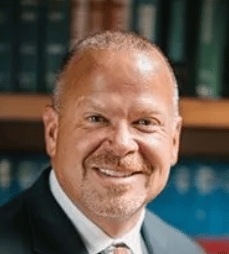 At the end of March, superstar actor Bruce Willis’ family announced he was stepping away from his acting career due to a condition called “aphasia,” which affects an individual’s ability to understand and express speech and language. After revealing this diagnosis, many people, including Willis’ Hollywood colleagues, were left wondering exactly what aphasia is and how one might develop it.
At the end of March, superstar actor Bruce Willis’ family announced he was stepping away from his acting career due to a condition called “aphasia,” which affects an individual’s ability to understand and express speech and language. After revealing this diagnosis, many people, including Willis’ Hollywood colleagues, were left wondering exactly what aphasia is and how one might develop it.
What is aphasia?
The Mayo Clinic explains aphasia as:
…a condition that affects your ability to communicate. It can affect your speech, as well as the way you write and understand both spoken and written language. Aphasia typically occurs suddenly after a stroke or a head injury. But it can also come on gradually from a slow-growing brain tumor or a disease that causes progressive, permanent damage (degenerative).
The Clinic also notes that the severity of one’s aphasia depends on how the brain damage occurred and how extensive it might be. Although Willis and his family declined to share the cause of his condition, as you can see, traumatic brain injury or a progressive illness could potentially be to blame.
What are the symptoms of aphasia?
Often, aphasia can be the marker of another condition, including brain injury, tumor, stroke, or even severe migraine headache. Aphasia is always something you should discuss with your doctor as soon as possible. Signs of aphasia include:
- “Speak in short or incomplete sentences
- Speak in sentences that don’t make sense
- Substitute one word for another or one sound for another
- Speak unrecognizable words
- Not understand other people’s conversation
- Write sentences that don’t make sense”
Note that your loved one may not notice these signs on their own and these symptoms can come on suddenly, especially with a stroke or brain injury.
There are also a few different types of aphasia, although we currently don’t know which type Bruce Willis has:
- Expressive aphasia. Also called Broca’s or non-fluent aphasia, patients may understand language better than they speak. You may notice them having difficulty getting their words out or leaving them out entirely, speaking in very short sentences. You may noticed your loved one becoming frustrated, and displaying physical symptoms like weakness on the right side.
- Comprehensive aphasia. Also called Wernicke’s or fluent aphasia, patients might be able to speak easily using long sentences, but this speech may not make any sense or use incorrect or unrecognizable words and terms. They may not know other people can’t understand them and they also may not understand other people.
- Global aphasia. This is the most severe form of aphasia and typically results from widespread damage to language centers in the brain. Patients suffer from extensive disability with both language expression and comprehension.
Aphasia can develop from a variety of causes, and must be diagnosed by a medical professional like a neurologist.
What causes aphasia?
The Cleveland Clinic discusses the various causes of aphasia, noting it can happen in one or more areas of the brain. Although the most common cause is stroke, people can also develop aphasia from serious head injuries, infections in the brain, brain tumors, or degenerative conditions. In some cases, degenerative aphasia can lead to dementia.
Generally, any damage to the brain in the areas that control language can result in issues with aphasia. People may experience brain injuries from car accidents, motorcycle accidents, or other serious head trauma. According to the Cleveland Clinic, anyone can develop and is at risk for aphasia, and about one million Americans currently live with the condition.
Are there treatments for aphasia?
Treatment for aphasia depends on the severity of the condition. Aphasia caused by mild cases of brain injury may resolve on their own, but more serious cases require speech and language therapy. Research into medications and other therapies, like transcranial magnetic stimulation, are ongoing.
Traditional therapy for aphasia involves speech and language therapy in an attempt to restore lost language skills, and working on alternate ways to communicate. These methods can include:
- Reading and writing exercises
- Listening to and repeating words
- Practicing expressive language
- Working on facial expressions and gestures
- Communicating through flashcards or drawings
- Communicating through smartphones or tablets
- Training on other assistive technologies
You can find out more about aphasia at the National Aphasia Association.
What is the long-term outlook for an aphasia patient?
According to Aphasia.org:
If the symptoms of aphasia last longer than two or three months after a stroke, a complete recovery is unlikely. However, it is important to note that some people continue to improve over a period of years and even decades. Improvement is a slow process that usually involves both helping the individual and family understand the nature of aphasia and learning compensatory strategies for communicating.
One of the most important things to remember about aphasia is that even though a person may struggle with words and phrases, it doesn’t mean they don’t understand. Aphasia affects the part of the brain that controls language and communication – not the part that controls understanding and comprehension. This is critical to keep in mind for both an aphasia patient and caretaker.
Aphasia can be a difficult and frustrating condition. The Sevierville attorneys at Delius & McKenzie, PLLC want to help if you or a loved one suffered a brain injury due to another’s negligence. You may be eligible for financial compensation for your injuries, allowing you or your loved one to secure the medical services and therapies you need to make your life whole again. To make an appointment with a member of our legal team, please call 865-428-8780, or submit our contact form today. We represent clients and families in Sevierville, Seymour, Gatlinburg, and Pigeon Forge, and throughout the Tri-Cities area.

Attorney Bryan E. Delius was born and raised in Sevier County, TN. He founded Delius & McKenzie more than 20 years ago, after receiving his JD from the University of Tennessee at Knoxville. He is admitted in Tennessee and in several federal court systems. Learn more about Bryan E. Delius.




